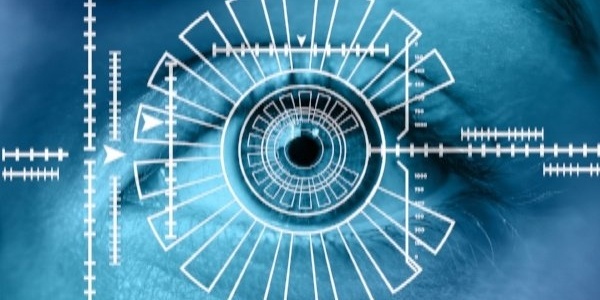Share this
Face recognition is 99% accurate
by Richard Verhoeff on May 14, 2018 3:35:21 PM
 If you have recently purchased a Samsung Galaxy S9 or you own an iPhone X, you must be pretty familiar with facial recognition. The ability to unlock your screen with one look at your smartphone or the animated emoji icons drawn from your real-time facial expressions are not only entertaining but are supposed to offer a higher level of security.
If you have recently purchased a Samsung Galaxy S9 or you own an iPhone X, you must be pretty familiar with facial recognition. The ability to unlock your screen with one look at your smartphone or the animated emoji icons drawn from your real-time facial expressions are not only entertaining but are supposed to offer a higher level of security.
The government in China started monitoring pedestrians using facial recognition cameras to prevent illegal road crossing. The software can match the facial scans with the ID photos and mobile devices and send a fine to the person affected via a text message.
In 2016, Google release Cloud Vision API, a dynamic tool that recognises and categorises images, extracts content, diagnoses languages or identifies inappropriate text and made it possible for developers to enrich their applications with these features.
Gender specific commercials
Visual identification is becoming more sophisticated, and experts use it in various ways from catching criminals to finding lost children or uncovering digital thieves. It also opens new areas for creative marketing. Several advertising campaigns have been launched using this powerful tool to target the audience with the right message.
Douwe Experts came up with a vending machine that offered a free coffee to passengers who yawned right in front of it. German beer company Astra rolled out interactive billboards that would scan consumers faces and target specifically women to promote their product. The built-in camera was also able to recognise their age and would offer a different message to the under-aged audience.
The future of tailored advertising looks promising. Seeing only the ads we want to see will become a reality. Customised shopping or travel recommendations in online advertising based on your current facial expression are not a science-fiction anymore.
Your face instead of your ID
Leisure industries start to experiment with this trend, too. Companies, such as RoomMatik, offer check-in booths for hotels using facial identification technology that allows more prompt check-in for hotel guests but also helps verify their identity.
Agilysys’ rGuest Stay, a cloud-based property-management system, offers an optional facial recognition feature to recognise returning customers when they enter the front desk and greet them accordingly.
Henn-na Hotel in Japan is a hotel entirely operated by robots. The receptionists speak several languages, and robotic helpers perform all the duties such as housekeeping or storing luggage. Using a combination of voice recognition and motion sensors, many commands such as light or heat control are automated. Facial recognition, among others, allows for a key-free entrance.
Find your significant other
Facial recognition is also finding its way into the dating sector. According to a research, humans are attracted to people who look like themselves. Instead of matching these by their common interests or habits, the matchmakers focus on engaging them by their physical appearance only.
Despite all the benefits this powerful technology brings, it also raises lots of questions about privacy and security. Concerns about whether people want to share their facial data and whether these are being handled responsibly remains a hot topic.
Share this
- January 2026 (2)
- December 2025 (2)
- November 2025 (2)
- October 2025 (2)
- September 2025 (3)
- August 2025 (2)
- July 2025 (1)
- June 2025 (1)
- April 2025 (4)
- February 2025 (2)
- January 2025 (3)
- December 2024 (1)
- November 2024 (5)
- October 2024 (2)
- September 2024 (1)
- August 2024 (1)
- July 2024 (4)
- June 2024 (2)
- May 2024 (1)
- April 2024 (4)
- March 2024 (2)
- February 2024 (2)
- January 2024 (4)
- December 2023 (1)
- November 2023 (4)
- October 2023 (4)
- September 2023 (4)
- June 2023 (2)
- May 2023 (2)
- April 2023 (1)
- March 2023 (1)
- January 2023 (4)
- December 2022 (3)
- November 2022 (5)
- October 2022 (3)
- July 2022 (1)
- May 2022 (2)
- April 2022 (2)
- March 2022 (5)
- February 2022 (2)
- January 2022 (5)
- December 2021 (5)
- November 2021 (4)
- October 2021 (2)
- September 2021 (1)
- August 2021 (3)
- July 2021 (4)
- May 2021 (2)
- April 2021 (1)
- February 2021 (2)
- December 2020 (1)
- October 2020 (2)
- September 2020 (1)
- August 2020 (2)
- July 2020 (2)
- June 2020 (1)
- March 2020 (2)
- February 2020 (1)
- January 2020 (1)
- November 2019 (3)
- October 2019 (2)
- September 2019 (3)
- August 2019 (2)
- July 2019 (3)
- June 2019 (5)
- May 2019 (2)
- April 2019 (4)
- March 2019 (2)
- February 2019 (2)
- January 2019 (4)
- December 2018 (2)
- November 2018 (1)
- October 2018 (1)
- September 2018 (2)
- August 2018 (3)
- July 2018 (3)
- May 2018 (2)
- April 2018 (4)
- March 2018 (5)
- February 2018 (1)
- January 2018 (3)
- November 2017 (2)
- October 2017 (2)



